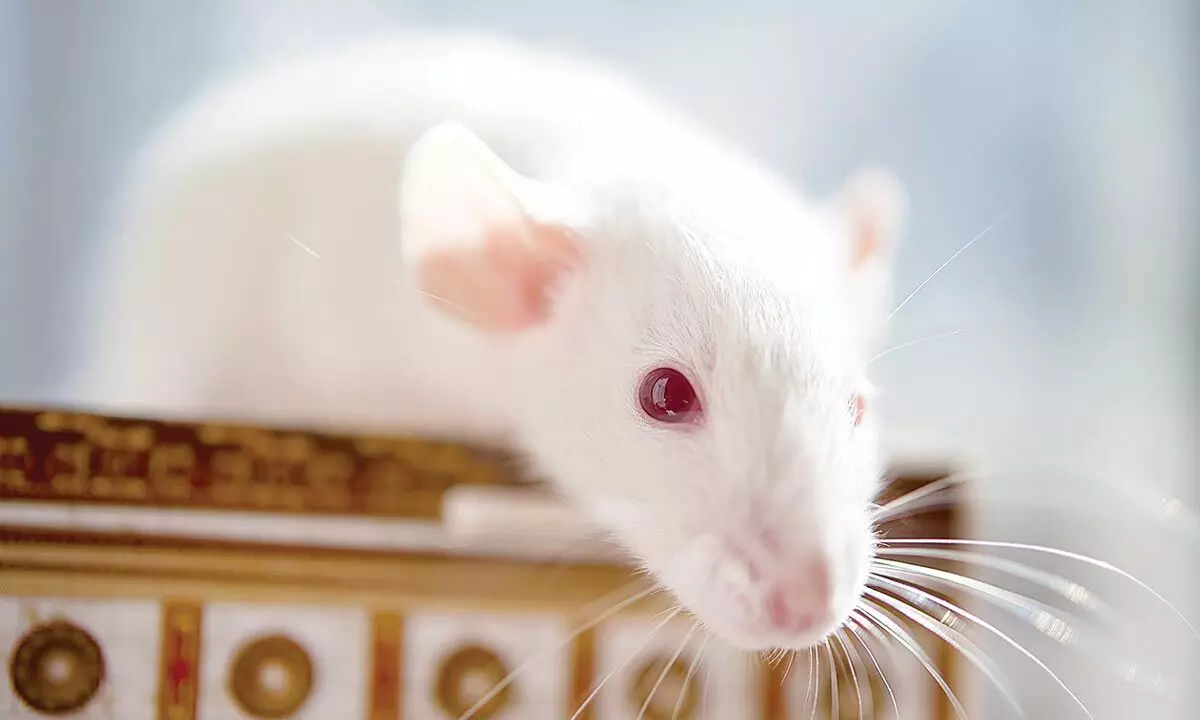PETA urges CPCSEA to make database of non-animal experimentation method
The animal rights group is of the view that this would help promote non-animal testing in drug research and development
image for illustrative purpose

The animal rights group's appeal came after the Committee for the Purpose of Control and Supervision of Experiments on Animals (CPCSEA), a statutory body constituted under The Prevention of Cruelty to Animals Act, 1960 has sought reforms to the proposed CPCSEA Administration Rules, 2022
The US-based animal rights organization, the People for Ethical Treatment of Animals (PETA), has recently appealed to the Indian government to introduce a database of non-animal experimentation methods through new proposed rules to promote non-animal methods substituting animal testing in drug research and development. The animal rights group's appeal came after the Committee for the Purpose of Control and Supervision of Experiments on Animals (CPCSEA), a statutory body constituted under The Prevention of Cruelty to Animals Act, 1960 has sought reforms to the proposed CPCSEA Administration Rules, 2022.
PETA India has submitted a slew of suggestions to CPCSEA including amendments to the core functions of the Committee to use non-animal methods for experimentations on animals, including for training and teaching. PETA is of the view that a comprehensive and regularly updated database of non-animal test methods would empower CPCSEA to reject proposals using animals. The animal rights group's recommended amendments regarding the core functions of CPCSEA include maintaining a publicly available and up-to-date database of non-animal methods which can be used to replace experimentation on animals, including for teaching and training.
There are no two opinions about the fact that a large number of monkeys, dogs, rats, and other animals are mutilated, burnt, blinded, cut open, poisoned, and drugged in research laboratories of the pharmaceutical companies every year. Although the Indian government does not publicly disclose the annual number of animals used in experiments approved by CPCSEA, more than a million scientific procedures were estimated to have been conducted in 2015, representing a more than 20 per cent increase over the last 10 years. In the proposed reforms, PETA India also urged CPCSEA to maintain detailed records of the number and species of animals bred for and used in research experiments of the pharmaceutical companies.
It suggested that the committee comprehensively analyse proposals calling for the use of animals so as to reject any for which the benefits do not outweigh the harm caused. Furthermore, when experiments using animals are approved, PETA India appealed to CPCSEA to conduct critical reviews of the outcomes to assess whether the use of animals actually led to any measurable advances in human health. The animal welfare group wanted to revamp biomedical research and regulatory testing in India to phase out animal experiments in pharmaceutical research. The supporters of animal welfare, euphemistically termed as animal activists, are of the view that most of the drug discoveries are possible without experimentations in animals and inflicting cruelty on them.
They argue that not only are these tests on animals cruel, their results are also inapplicable to humans because of the vast physiological differences among species. Recently, PETA had once again urged the Indian government to endorse its Research Modernization Deal outlining a roadmap for replacing the use of animals in experiments with human-relevant methods. The Deal outlined steps to eliminate the use of animals immediately in areas in which they have already been shown to be poor surrogates for humans and critically review additional areas of research to determine where animal use can be ended.
PETA India requested the government to take this official step immediately by endorsing the Deal, establishing a clear policy within a legislative framework, mandating an end to experimentation on animals, and providing a clear strategy and timeline for achieving this goal. It emphasized the need for implementing a robust ethical evaluation system as part of policies governing the use of animals, thereby increasing the transparency, accountability, and effectiveness of the regulatory process.
It is true that during the last several years, there have been controversies in the world on the issue of the role of animal experimentation in drug discovery. Millions of animal are routinely used every year in laboratories around the world to test the safety and efficacy of drugs for humans. All conventional drugs are tested on animals at some point as this is required by regulators and in many countries by legislation. It is true that virtually all major medical advances for both humans and animals have been achieved through bio-medical research by using animal models. So much so that over 50 Nobel Prize winning researchers of the last Century in Medicine and Physiology utilised animals.
It is also true that in spite of all the advances that medical science has made over the years, a large number of intractable diseases still remain incurable. Cancer, several viral diseases, immunodeficiency disorders including HIV/AIDS, degenerative diseases due to increasing number of ageing populations and many life-style-induced diseases fall under this category. A section of the scientists argues that advances in the management of these diseases through the development of diagnostics, prophylactics and therapeutics can come about only through the continued use of animal models in medical research. Now, the government should take a well considered view on the issue while keeping in mind the fact that, all said and done, developing new medicines for the next generation should be the focus.
(The author is freelance journalist with varied experience in different fields)

